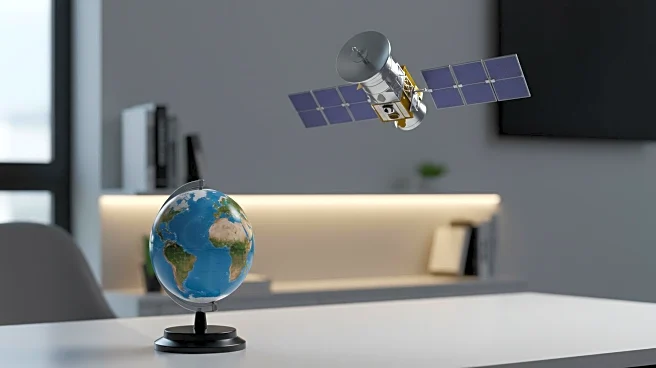What's Happening?
Colorado's Broadband Equity Access and Deployment (BEAD) program is seeing a shift in bids towards low-Earth orbit (LEO) satellite options, alongside an increase in bids from fixed wireless access service providers. This change comes during the 'Benefit of the Bargain' round, which prioritizes cost-based approaches. Previously, the program emphasized fiber, with 70% of bids for fiber compared to 30% for LEO and FWA. The current program has reversed this mix, with 60% of bids for LEO and FWA. The shift is attributed to aggressive pricing and targeted locations by LEO service operators.
Why It's Important?
The shift in Colorado's BEAD program reflects broader trends in broadband deployment strategies, particularly in rural and mountainous regions where satellite options may be more viable. This change could lead to significant cost savings, with estimates suggesting Colorado might return $200 million to $400 million from its original allocation. The program's focus on lower-cost, tech-neutral approaches could accelerate broadband access in underserved areas, impacting local economies and connectivity. Stakeholders, including satellite operators and fixed wireless providers, stand to benefit from increased participation and potential market expansion.
What's Next?
Colorado and other states are in a 90-day window to submit final proposals by September 4, following changes announced by the US Commerce Department. The revised BEAD program aims to expedite funding distribution while maintaining a focus on cost-effective solutions. As states finalize their proposals, the program's impact on broadband access and infrastructure development will become clearer. Stakeholders, including SpaceX, have expressed interest in revising fiber-focused proposals to include lower-cost satellite options, indicating ongoing discussions and potential adjustments.











